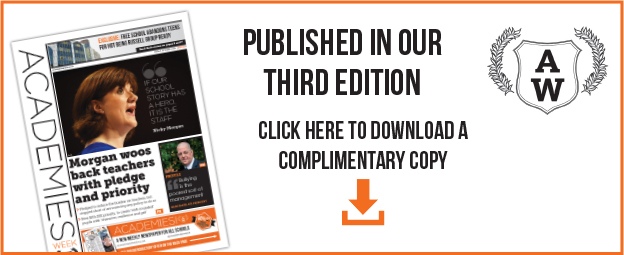There are encouraging signs that the new education secretary is interested in the potential of technology to improve learning outcomes.
The use of technology to improve learning has been a hot topic for governments past and present.
Almost four years after taking office Michael Gove opened the inaugural meeting of the Education Technology Action Group (ETAG) with this statement:
“When we took office we believed that government needed to get out of the way of schools and colleges and empower those professionals on the ground to make decisions. We now recognise that in the area of ICT and Learning Technology getting out of the way is not enough and there is a role for Government in supporting and sharing innovative ways technology can enhance learning and improve learning outcomes.”
ETAG is a cross-sector group commissioned to provide advice to ministers, the Department for Education and the Department for Business Innovation and Skills. The group consists of several professors of education, the Open University, headteachers, and other interested parties.
However, ETAG lost all of its sponsoring ministers (Michael Gove, Matthew Hancock and David Willetts) during the reshuffle, casting doubt about the new ministerial team’s interest in the role of technology in learning.
Nick Boles subsequently picked up the FE side, implementing the Further Education Learning Technology Action plan.
But what about schools?
There is evidence of a correlation between teachers who use technology effectively and improved outcomes
There are some encouraging early signs that Nicky Morgan, who replaced Michael Gove as education secretary, has been persuaded by DfE officials that this is an area in which she should be interested and keep up momentum. Firstly, the article which appeared in the Telegraph this week talked of her enthusiasm for digital ‘apps’ in schools. Secondly, it is understood she accepted an invitation to open the world’s largest education technology exhibition and conference, BETT, in January 2015.
The ETAG group was also recently reconvened by the DfE and we were invited to provide the Secretary of State with a steer on what the government should do, and what it should stop doing, to make it easier for schools to innovate with learning technology and improve learning outcomes.
The research is very clear on the relationship between technology and learning. There is no evidence of a causal link between any piece of technology and improved learning outcomes, but there is abundant evidence of a correlation between schools and teachers who use technology effectively (or “thoughtfully” as Stanford University Professor Linda Darling-Hammond says in a recent study) and improved learning outcomes.
So the key question Nicky Morgan needs ETAG to advise her on is: “What is it that makes that difference?”
Early suggestions from ETAG could be around issues such as: how leadership vision of technology can enhance learning; the basic right of every learner to be connected to a
fast broadband connection at school and home; the skills and confidence of the education workforce to use technology effectively and “thoughtfully”; and an assessment and accountability system which reflects the potential technology offers and ensure “the assessment and accountability tail does not wag the pedagogical dog”.
It will be interesting to hear what the Secretary of State has to say at BETT and whether she is prepared to listen to the ETAG recommendations.
Whichever way it goes the impact of technology on learning will accelerate irrespective of which minister or governing party is in charge.
You can follow him on Twitter @bobharrisonset or reach him at
www.setuk.co.uk
Bob Harrison is a school and college governor and an Education Adviser for Toshiba Information Systems








Your thoughts